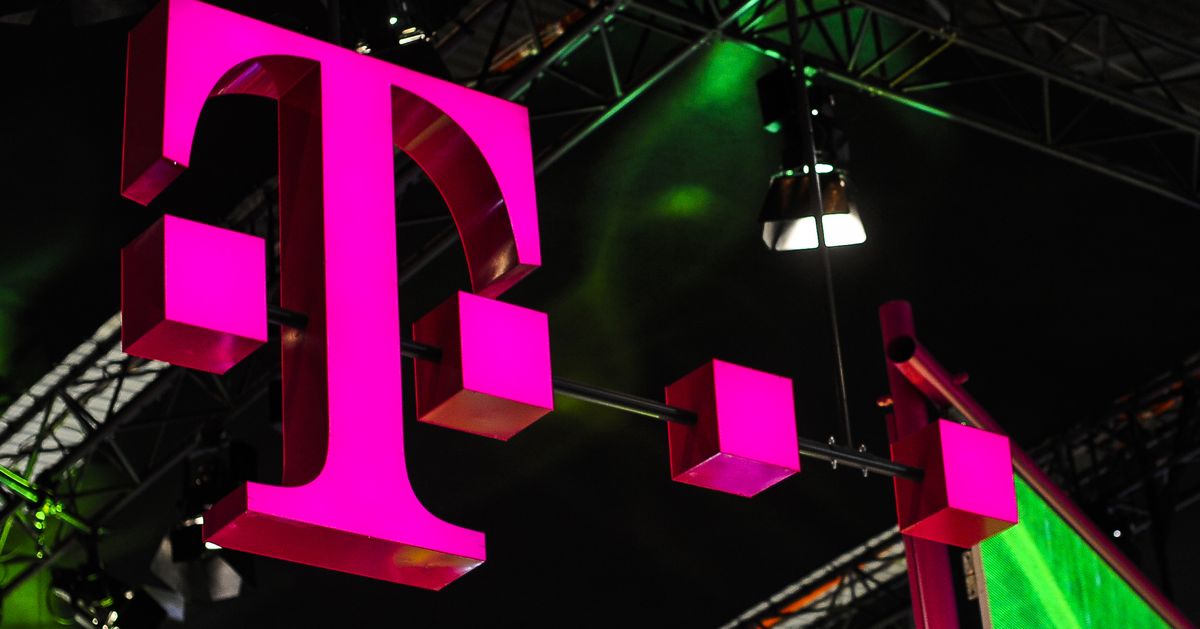
T-Mobile CEO John Legere took something of a victory lap this afternoon, using a call with investors to trash talk his rivals’ 5G plans now that T-Mobile’s merger with Sprint has federal approval. Legere called Verizon “dead in the water without a strategy” and said AT&T has been “lying” and “confusing” customers about its deployment.
Legere laid out a coherent and entertaining (and if you’re his competitors, insulting) vision of the current state of 5G strategies while on the call. Of course, it’s all premised on the idea that T-Mobile, once combined with Sprint, has the one true vision for 5G, which is more than debatable. But his explanation isn’t necessarily wrong, either.
People have said that we trash mmWave as an alternative for 5G, and that’s absolutely not true. We have made fun of a mmWave-only strategy. It will not work. Verizon’s strategy will not work. It’s fake. It was a first mover play. It would cost $1.5 trillion to do, and they’re kind of dead in the water without a strategy right now. I think the world’s starting to catch on.
AT&T, on the other hand, at least gets the template. So if you look at the template that we’re working on — which is you have a combination nationwide of low-band, the 2.5GHz midband, and mmWave in highly concentrated areas — do we believe in it? We just spent over $840 million to quadruple our mmWave spectrum in the latest auction. When you put those three together, you get true nationwide capability that this country needs that nobody else has.
The difference for AT&T — although they get the vision — they don’t have the mid-band. So there’s a hole in their strategy. But at least I think they get the template. Verizon: clueless, no strategy, nowhere to go. AT&T: not clueless, lying, confusing people about 5GE, which is really just 4G Advanced, and a big hole in their template, which is the middle, and where are they going to get the mid-band to lay this up?
The TL;DR is that Legere believes 5G requires low-band, mid-band, and high-band spectrum in order to work, and the combined T-Mobile is the only carrier that has access to all that.
AT&T and Verizon both have high-band (millimeter wave, or mmWave) spectrum, which delivers extremely fast speeds, but it’s only useful at very short ranges. They also both have low-band spectrum, which is what’s already used for LTE. Mid-band spectrum, which Sprint has, can deliver somewhat faster speeds at somewhat longer distances, offering T-Mobile more flexibility.
Verizon has focused its 5G talk on the deployment of mmWave, and Legere says that a “mmWave-only strategy … will not work” because it’ll cost too much. AT&T has emphasized that it’s working on upgrading its LTE network to transform it into 5G service (albeit, while misleading customers in the process through confusing branding). Legere says those upgrades are the right approach, but that AT&T has “a big hole” in its plan because of the lack of mid-band.
Whether mid-band is truly necessary for 5G is very much up for debate — Sprint, which owns mid-band spectrum, has described itself as mostly doomed when it comes to 5G because that’s all it has to rely on. T-Mobile’s ability to combine that spectrum with other offerings is why Legere is leaning back and ripping apart his rivals.
AT&T isn’t taking his criticism particularly seriously. “Oh look, Legere is back. They were last to 5G, but he’s already the expert,” an AT&T spokesperson told The Verge. We’ve reached out to Verizon for comment as well.
Verizon, AT&T, and T-Mobile have all started rolling out their 5G networks this year, though so far availability is extremely limited, to the point where it’d be a waste of money to buy a 5G device, potentially even if you lived in one of the few areas where there is availability. Deployment is expected to increase significantly over the next year, particularly as carriers begin to step up their 5G rollouts outside of the very limited mmWave deployments we’ve see now.
It’ll be at least a couple months before T-Mobile can start to do anything with Sprint’s assets, though. The deal needs time to close, and several states still have lawsuits open against the deal. The settlement proposed today with the DOJ could help to resolve some of those issues, but states like California may wish to see even more concessions.
T-Mobile and Sprint reached a deal to have their merger approved by the Department of Justice earlier today. The deal requires the combined company to sell off a number of assets to Dish, including wireless spectrum and prepaid wireless brands like Boost Mobile, and for the company to let Dish piggyback on its network for up to seven years.
The merger had been pending for more than a year while it underwent review. The Federal Communications Commission approved the merger in May, but the Justice Department maintained concerns that allowing the two companies to combine would harm competition in the wireless market, as it would remove the two underdogs and create a third giant that’s relatively equally matched to competitors AT&T and Verizon.
https://www.theverge.com/2019/7/26/8930691/tmobile-ceo-trashes-verizon-att-5g-plans

